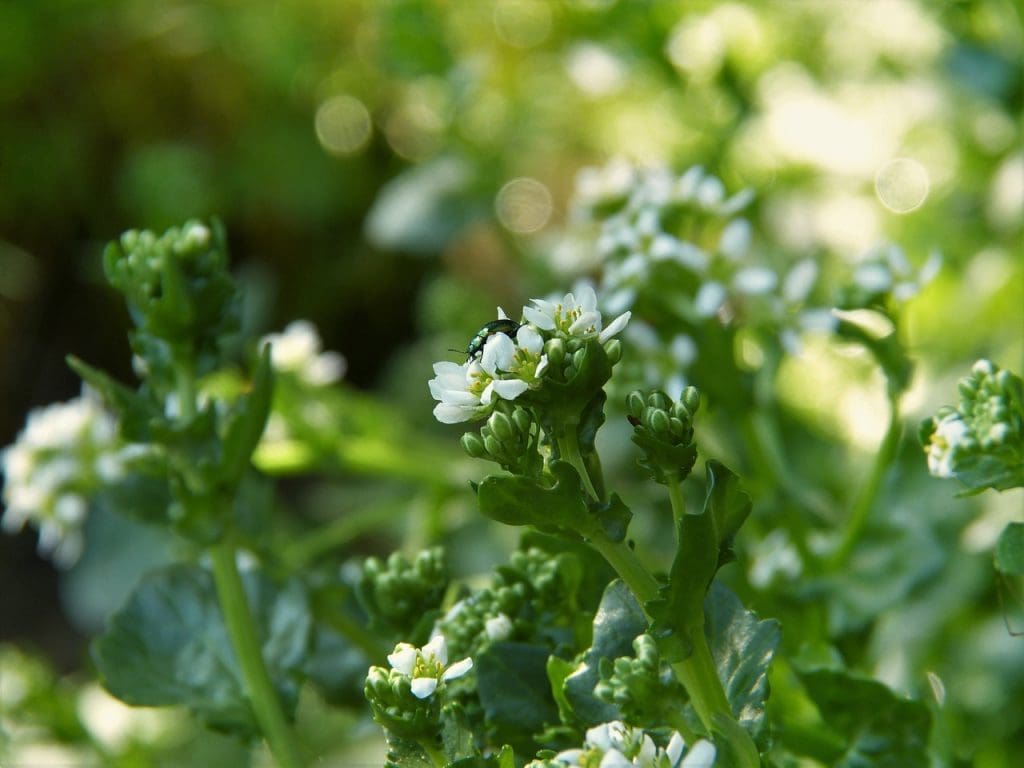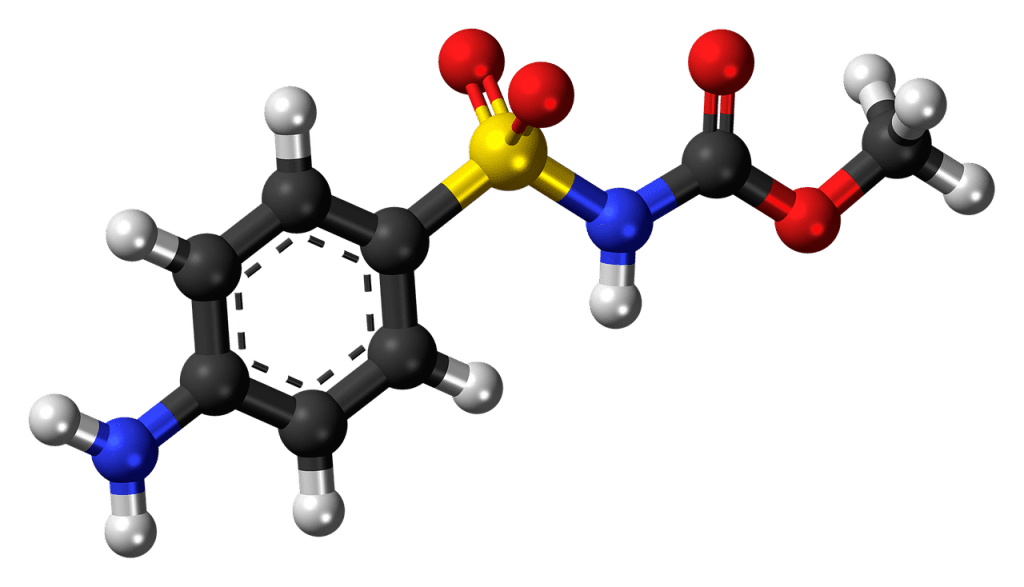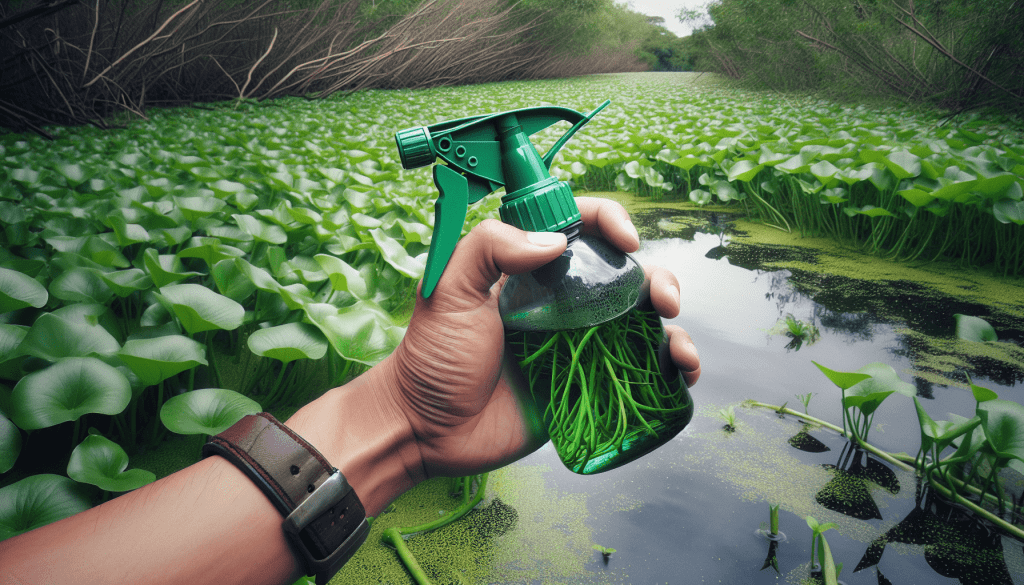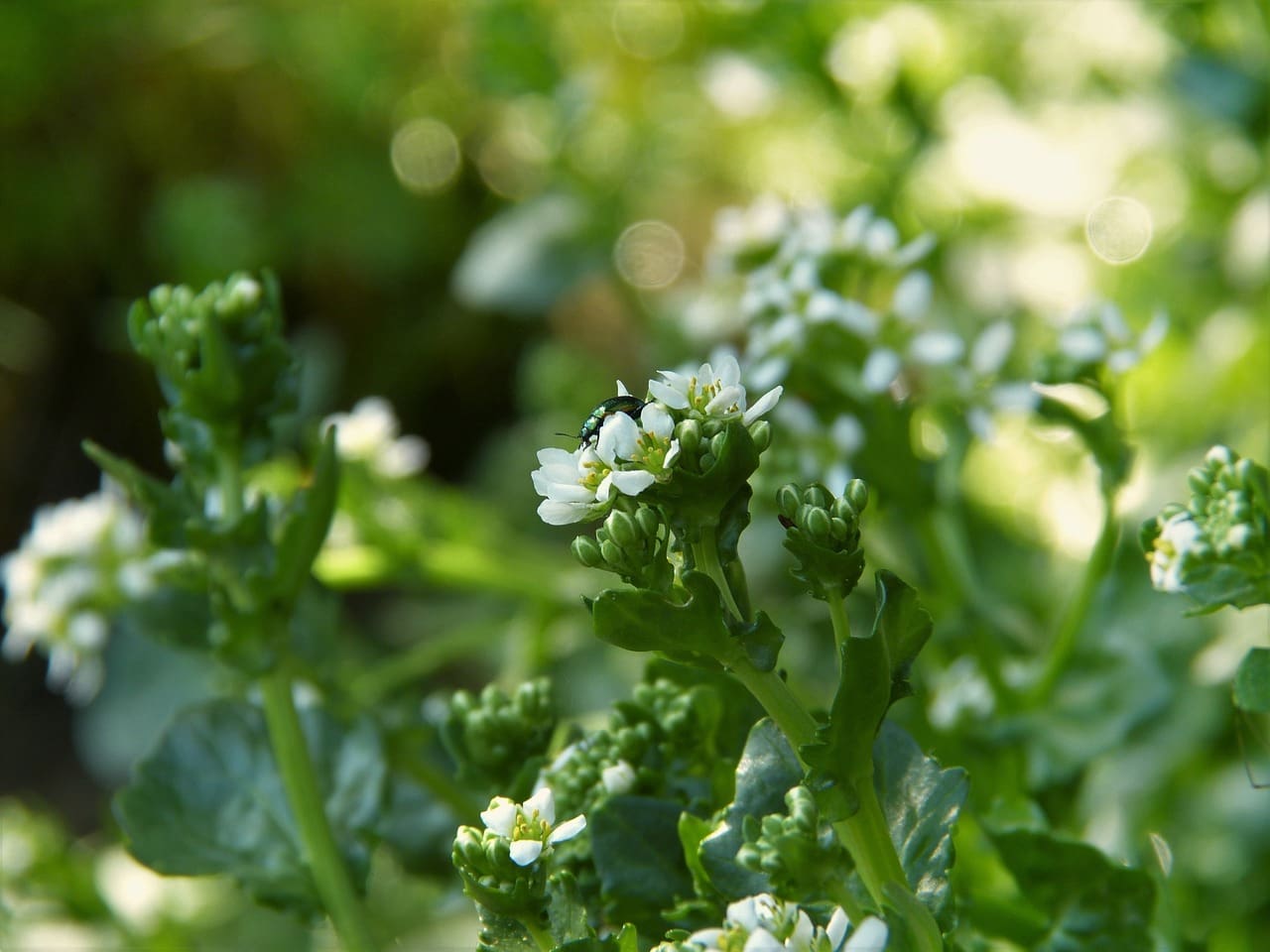Welcome to your essential guide on selecting the most effective herbicides for managing alligator weed. This comprehensive buyer’s guide simplifies the decision-making process, equipping you with the crucial information needed to tackle this invasive plant. From understanding the behavior of alligator weed to exploring the best herbicide options tailored to your specific needs, this guide ensures you’ll make an informed choice to protect your landscape and restore its natural beauty.
Buyer’s Guide: Choosing The Right Herbicides For Alligator Weed Management
Have you noticed persistent patches of alligator weed overtaking your landscape, water bodies, or farmland? If so, you’re probably searching for effective methods to regain control of your property. Managing alligator weed can be a daunting task, but don’t worry; we’re here to help! This friendly guide will steer you through choosing the right herbicides for alligator weed management so you can achieve the best results for your specific needs.
Understanding Alligator Weed
Before diving into the herbicide options, it’s essential to understand what you’re up against. Alligator weed (Alternanthera philoxeroides) is a highly invasive and tenacious plant that can take over both aquatic and terrestrial environments.
Characteristics of Alligator Weed
Alligator weed is a perennial plant that can grow in both water and on land. It has hollow stems, dark-green elliptical leaves, and small white flowers. Its rhizomes spread aggressively, making it a formidable foe for homeowners and farmers alike.
Why Is Alligator Weed a Problem?
Not only does alligator weed disrupt ecosystems by displacing native plants and altering habitats, but it can also negatively impact agricultural productivity and water circulation. If left unmanaged, it will continue to spread and become increasingly difficult to control.
Considerations Before Choosing Herbicides
Selecting the right herbicide involves careful consideration of several factors. Each decision can significantly influence the effectiveness and environmental impact of your weed management program.
Assessing Your Environment
Where is the alligator weed growing? Aquatic and terrestrial environments require different approaches and herbicides. Identify whether your issue is on land, in water, or a mix of both.
Legal and Safety Concerns
Some herbicides may be restricted or regulated in certain areas. Ensure you understand any state or local regulations before making a purchase. Additionally, consider the safety of non-target species, humans, and pets.
Integrated Pest Management (IPM)
Consider integrating mechanical, biological, and cultural methods with chemical control. Herbicides should be a part of a comprehensive IPM strategy, not the sole method.

Types of Herbicides for Alligator Weed
Herbicides can be categorized by their mode of action, application timing, and how they interact with the environment. Understanding these categories will help you choose the most suitable product for your situation.
Systemic vs. Contact Herbicides
- Systemic Herbicides: These are absorbed by the plant and translocated throughout the entire plant, effectively killing both above-ground parts and roots. Systemic herbicides are excellent for perennial weeds like alligator weed.
- Contact Herbicides: These only kill the parts of the plant they contact, often requiring multiple applications. They are less effective for controlling alligator weed due to its regenerative capabilities.
Selective vs. Non-Selective Herbicides
- Selective Herbicides: These target specific types of plants, leaving surrounding vegetation largely unaffected. They are ideal for mixed plant environments.
- Non-Selective Herbicides: These kill or damage all plants they contact. Use these with caution to avoid damaging desired vegetation.
Pre-Emergent vs. Post-Emergent Herbicides
- Pre-Emergent Herbicides: These prevent seeds from germinating and are not effective on established alligator weed. They are generally not recommended for managing this plant.
- Post-Emergent Herbicides: These target existing plants and are the most commonly used for alligator weed management.
Popular Herbicides for Alligator Weed Management
Here’s a closer look at some of the most effective herbicides for controlling alligator weed. Remember, the best product for you depends on specific circumstances and the environment in which you are applying it.
| Herbicide | Type | Mode of Action | Application Method | Notes |
|---|---|---|---|---|
| Glyphosate | Systemic, Non-Selective | Inhibits amino acid synthesis | Foliar spray | Effective but needs multiple applications; avoid water bodies to prevent non-target impact |
| Imazapyr | Systemic, Non-Selective | Inhibits enzyme in the amino acid production pathway | Foliar spray, soil injection | Long-lasting control; can impact soil quality |
| 2,4-D Amine | Systemic, Selective | Synthetic auxin (plant growth hormone) | Foliar spray | Selective for broadleaf plants; safe for many grasses |
| Triclopyr | Systemic, Selective | Auxin mimic (plant growth regulator) | Basal bark treatment, foliage application | Good for both aquatic and terrestrial areas; less harmful to grasses |
| Diquat | Contact, Non-Selective | Desiccant; causes rapid cell death | Foliar spray | Use with caution; primarily for aquatic management |
Glyphosate
Glyphosate is a widely used systemic, non-selective herbicide. It’s absorbed and translocated throughout the plant, effectively killing it from within.
Pros:
- Highly effective on alligator weed.
- Suitable for large-scale applications.
Cons:
- Non-selective; can harm desired plants.
- Multiple applications often required.
Usage Tips:
- Apply during periods of active growth.
- Avoid application near water bodies to minimize the risk to aquatic life.
Imazapyr
Imazapyr is another systemic herbicide that provides long-lasting control. It’s also non-selective, so caution is required where desirable plants are present.
Pros:
- Long residual activity provides extended control.
- Can be effective through foliar sprays or soil injections.
Cons:
- Non-selective, potentially impacting non-target species.
- May affect soil quality.
Usage Tips:
- Apply carefully around desirable plant species.
- Ideal for situations where long-term control is necessary.
2,4-D Amine
2,4-D Amine is a systemic herbicide that’s selective for broadleaf plants, making it less harmful to grasses and other non-target species.
Pros:
- Effective on broadleaf plants like alligator weed.
- Safer around grasses and some other non-target plants.
Cons:
- May require repeat applications.
- Over-application can harm non-target species.
Usage Tips:
- Apply during the early growth stages of the weed.
- Use a surfactant to improve adhesion to the plant surface.
Triclopyr
Triclopyr is a systemic, selective herbicide most effective for both aquatic and terrestrial environments. It mimics plant growth hormones, disrupting essential processes.
Pros:
- Effective on woody and herbaceous plants.
- Safe for many grasses.
Cons:
- Can take several weeks to see results.
- Some formulations can be volatile, requiring careful handling.
Usage Tips:
- Consider basal bark treatment for woody stems.
- Follow up with mechanical control if necessary.
Diquat
Diquat is a contact herbicide that works rapidly, causing cell death upon contact. It’s particularly useful for quick knock-down in aquatic settings.
Pros:
- Rapid action.
- Effective for clearing dense infestations.
Cons:
- Does not translocate, so root systems may not be affected.
- Can harm non-target aquatic plants and animals.
Usage Tips:
- Apply directly to foliage during active growth periods.
- Follow up with systemic herbicides for complete control.

Application Techniques
The effectiveness of your herbicide depends not only on the chemical itself but also on how you apply it. Let’s dive into the different application techniques for managing alligator weed.
Foliar Sprays
Foliar application is the most common method for applying herbicides to alligator weed. This involves spraying the herbicide directly onto the leaves, where it’s absorbed into the plant.
Pros:
- Directly targets the problem plants.
- Can cover large areas quickly.
Cons:
- Risk of drift affecting non-target plants.
- May require multiple applications.
Tips:
- Ensure thorough coverage without over-saturating.
- Best applied during active growth periods.
Basal Bark Treatment
This method involves applying herbicide to the lower portion of the plant’s stems and trunks. It’s particularly effective for woody species and can be used with systemic herbicides like Triclopyr.
Pros:
- Targets the plant more precisely.
- Less risk of drift.
Cons:
- Time-consuming for large infestations.
- Requires more herbicide.
Tips:
- Apply evenly around the circumference of the stems.
- Best suited for smaller infestations or follow-up control.
Soil Application
Involve applying herbicides directly to the soil where they’re absorbed by plant roots. Imazapyr is commonly used for soil applications.
Pros:
- Long-lasting control.
- Can treat large areas without foliage contact.
Cons:
- Can affect soil quality.
- Risk of affecting non-target plants.
Tips:
- Apply during periods of active root growth.
- Use soil injection or surface application techniques.
Environmental and Safety Considerations
Herbicides, while useful, need to be managed responsibly to minimize their environmental impact and ensure safety for human and animal health.
Environmental Impact
Be aware of the potential impact of your chosen herbicide on the surrounding ecosystem. Non-target species, including beneficial plants, insects, and aquatic life, can be affected.
Tips:
- Always read and follow label instructions.
- Opt for selective herbicides when appropriate.
- Apply during calm weather to reduce drift.
Human and Animal Safety
Ensure safe handling, storage, and application to protect yourself and others from potential harm.
Safety Measures:
- Wear appropriate protective gear.
- Store herbicides in a secure, well-ventilated area.
- Follow recommended application rates and methods.
Disposal and Cleanup
Proper disposal of herbicides and application equipment is crucial for environmental protection.
Tips for Disposal:
- Follow local regulations for disposing of herbicide containers.
- Triple-rinse containers before disposal or recycling.
- Clean application equipment thoroughly following use.

Tips for Effective Alligator Weed Management
Effective management of alligator weed often requires a multi-faceted approach. Here are some bonus tips to enhance the effectiveness of your herbicide application and overall management strategy.
Timing is Everything
Applying herbicides at the right time is crucial. Aim to treat alligator weed during its active growth phases when uptake and translocation are maximized.
Combine Methods
Consider integrating mechanical or biological control methods with herbicide application. Hand-pulling or cutting can reduce biomass, making herbicide treatments more efficient.
Monitor and Follow-Up
Regular monitoring is key to successful management. Keep an eye on treated areas and perform follow-up treatments as necessary to prevent regrowth.
Engage With Professionals
If you’re dealing with a large or complex infestation, it may be beneficial to consult with a professional. They can provide tailored recommendations and ensure safe and effective management.
Common Questions About Alligator Weed Management
Let’s wrap up with answers to some common questions you might have about managing alligator weed with herbicides.
How Often Should I Reapply Herbicide?
The frequency of reapplication depends on the type of herbicide used and the severity of the infestation. Systemic herbicides might require fewer applications but always follow the label instructions for the best outcomes.
Can I Use a Combination of Herbicides?
Yes, combining herbicides can enhance control, especially in dense infestations. However, ensure compatibility and follow all safety guidelines when mixing products.
Is It Safe to Use Herbicides Near Water?
Some herbicides are safe for aquatic environments, while others are not. Always choose an aquatic-friendly herbicide if treating infestations near or in water bodies and follow local regulations.
How Long Does It Take to See Results?
Results can vary based on the herbicide and environmental conditions. Systemic herbicides might take a few weeks to show full results, while contact herbicides can act more quickly.
What Should I Do After Treating Alligator Weed?
Post-treatment care involves monitoring treated areas for regrowth and additional follow-up as necessary. Consider planting native or desired species to reduce the chance of reinfestation.

Conclusion
Managing alligator weed can be a challenging endeavor, but by choosing the right herbicides and using them effectively, you can reclaim your landscape or water body from this invasive plant. This guide has provided you with a comprehensive look at the options available and how to make informed decisions tailored to your specific situation. Remember, the key to successful management is combining chemical control with other methods, regular monitoring, and being environmentally conscious. Happy weed managing!
